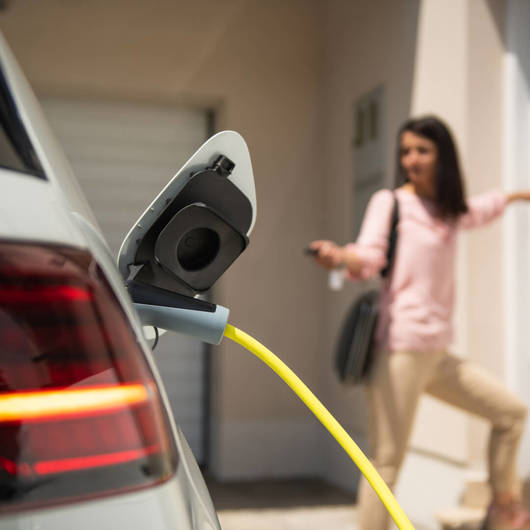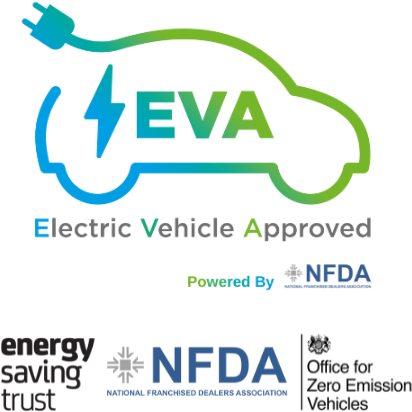
While customer confidence for EVs continues to grow, buyers will naturally have some questions when it comes to switching to electric vehicles.
Our newest segment looks at the most frequently asked questions you may have from buyers, to arm you with the most up-to-date insight and information to be able to put their minds at ease.
First up in the series, we delve into at-home charging, covering the costs associated with home charger installation, available grants, the average cost of charging various electric cars, and the best type of home charger to choose.
Cost of Installing a Home Electric Car Charger
A home charging station typically costs between £800 and £1,500, depending on the installation provider and the charger model. While the Electric Vehicle Homecharge Scheme (EVHS) ended in April 2022, the Office for Zero Emission Vehicles (OZEV) now offers a similar grant for residents of flats and rental properties. This grant covers up to £350 of the installation cost for one charge point.
To be eligible for the grant, applicants must:
- Live in a rented property or own a flat
- Have dedicated off-street parking
- Own, lease, or have access to an eligible electric or plug-in hybrid vehicle
- Not have previously claimed an EV charge point grant or the previous EVHS grant
If you qualify, this grant can significantly reduce the cost of installing a home charger.
Power Consumption of Electric Car Chargers
EV power consumption is measured in kilowatts (kW), the same unit used for household electricity. Electric car batteries typically range from 17 kWh (as seen in the Smart ForTwo EQ) to over 100 kWh (like the BMW iX), with most current EVs having battery capacities between 50 kWh and 80 kWh.
To estimate charging time, divide the battery capacity by the charger speed. Home chargers usually offer 7 kW charging speeds, but options for slower or faster chargers exist.
Calculating the cost of a full charge involves multiplying the battery capacity by your electricity rate. Many energy companies offer special tariffs for EV drivers, often at reduced rates, with some providing renewable energy options.
Charging Costs for Various Electric Vehicles
Here's a look at the charging times and costs for different EVs, based on an average UK electricity rate of £0.245 per kWh (as of April 2024):
|
Vehicle |
Battery Size |
Full Charge Time |
Cost of Full Charge |
Real-World Range |
|
Nissan Leaf |
40 kWh |
5h 43m |
£9.80 |
145 miles |
|
Nissan e-NV200 |
40 kWh |
5h 43m |
£9.80 |
130 miles |
|
MG 4 EV |
51 kWh |
6h 50m |
£12.50 |
185 miles |
|
Kia Niro EV |
64 kWh |
9h 9m |
£15.68 |
235 miles |
|
Mercedes EQC |
80 kWh |
11h 26m |
£19.60 |
230 miles |
|
Tesla Model S |
100 kWh |
14h 17m |
£24.50 |
315 miles |
|
BMW iX |
111.5 kWh |
15h |
£27.32 |
315 miles |
*Note: Costs are based on an average rate of £0.245 per kWh. Actual costs can vary significantly depending on your specific tariff and charging time.
Charging at home overnight on a dedicated EV tariff can be much cheaper. Additionally, for those with solar panels, charging can sometimes be free with the right setup.
In summary, while the upfront cost of installing a home charger can be significant, grants and special tariffs can help reduce the overall expense. Understanding the power consumption and associated costs of your EV will ensure you make informed decisions about your home charging setup.






